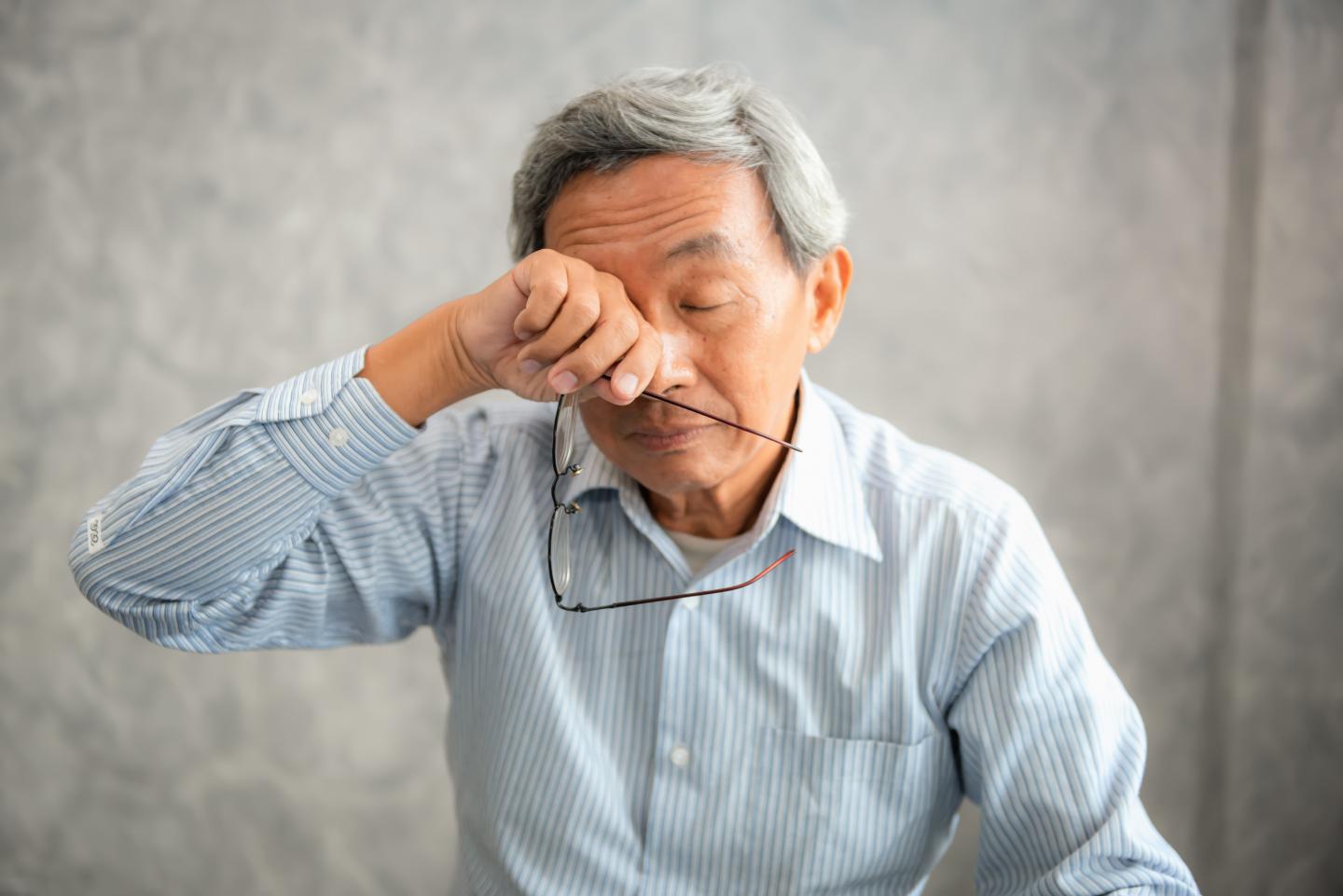
Credit: ATS
Feb. 15, 2019–Adults with obstructive sleep apnea (OSA) who experience excessive sleepiness while awake appear to be at far greater risk for cardiovascular diseases than those without excessive daytime sleepiness, according to new research published online in the American Thoracic Society’s American Journal of Respiratory and Critical Care Medicine.
In “Symptom Subtypes of Obstructive Sleep Apnea Predict Incidence of Cardiovascular Outcomes,” Diego R. Mazzotti, PhD, and co-authors report on a study of adults with moderate to severe OSA who were categorized into four subtypes according to the symptoms they report: disturbed sleep, minimally symptomatic, moderately sleepy and excessively sleepy.
Previous studies have linked OSA and cardiovascular disease. To understand this association better, researchers have begun to categorize patients with OSA based on their symptoms.
“Multiple studies from our group have shown that patients with moderate to severe OSA throughout the world can be categorized into specific subtypes based on their reported symptoms,” said Dr. Mazzotti, lead study author and a sleep researcher at the University of Pennsylvania. “However, until now, it was unclear whether these subtypes had different clinical consequences, especially in regard to future cardiovascular risk.”
The current study analyzed data from 1,207 adults participating in the Sleep Heart Health Study, available from the National Sleep Research Resource. Patients were 40 years old or older at enrollment and were followed for nearly 12 years. The patients had moderate to severe OSA, which was defined as having at least 15 episodes per hour while sleeping when they stopped breathing (apnea) or had reduced breathing (hypopnea). The metric is known as the apnea-hypopnea index, or AHI.
Participant-reported symptoms, such as difficulty falling and staying asleep, snoring, fatigue, drowsy driving and daytime sleepiness, and responses to a widely used questionnaire called the Epworth Sleepiness Scale were used to determine the patient’s subtype.
The study found participants exhibiting the excessively sleepy subtype were:
- More than three times as likely to have been diagnosed with heart failure at enrollment than the other three subtypes.
- About twice as likely to experience a cardiovascular event (heart attack, heart failure, stroke or cardiovascular death) during the follow-up period than the other three subtypes.
- The only group that had higher rates of cardiovascular disease at enrollment when compared to individuals without OSA.
- More likely to experience a new or recurrent cardiovascular event during the follow-up period.
The authors said that their study indicates the increased risk of cardiovascular disease associated with OSA appears to be driven by patients in the excessively sleepy subtype.
Given the observational study design, they could not prove that excessively sleepy subtype was a causal factor for cardiovascular disease. Ultimately, excessive sleepiness could be a “surrogate marker of underlying cardiovascular risk pathways,” they wrote.
However, the authors demonstrate that the association is independent of a number of demographic and health factors that might have biased results, including age, body mass index , smoking, diabetes, hypertension, cholesterol and medications.
The authors suggest their findings should guide future research studies. For instance, the researchers believe that studies of the cardiovascular benefits of continuous positive airway pressure, or CPAP, treatment for OSA should focus on the excessively sleepy subtype, who are likely to benefit the most from what is considered the gold standard OSA treatment.
“Even without further research, clinicians should recognize that patients with OSA who complain of feeling tired when they wake up and sleepy during the day and have a high score on the Epworth Sleepiness Scale are at greater risk for cardiovascular disease,” Dr. Mazzotti said.
He added that the research team is developing a simple tool to facilitate the accurate classification of patients into symptom subtypes, which should improve the clinical utility of their findings.
###
The Sleep Heart Health Study and the National Sleep Research Resource were supported by the National Heart, Lung, and Blood Institute.
About the American Journal of Respiratory and Critical Care Medicine
The AJRCCM is a peer-reviewed journal published by the American Thoracic Society. The Journal takes pride in publishing the most innovative science and the highest quality reviews, practice guidelines and statements in pulmonary, critical care and sleep medicine. With an impact factor of 15.239, it is one of the highest ranked journals in pulmonology. Editor: Jadwiga Wedzicha, MD, professor of respiratory medicine at the National Heart and Lung Institute (Royal Brompton Campus), Imperial College London, UK.
About the American Thoracic Society
Founded in 1905, the American Thoracic Society is the world’s leading medical association dedicated to advancing pulmonary, critical care and sleep medicine. The Society’s 15,000 members prevent and fight respiratory disease around the globe through research, education, patient care and advocacy. The ATS publishes three journals, the American Journal of Respiratory and Critical Care Medicine, the American Journal of Respiratory Cell and Molecular Biology and the Annals of the American Thoracic Society.
The ATS will hold its 2019 International Conference, May 17-22, in Dallas, Texas, where world-renowned experts will share the latest scientific research and clinical advances in pulmonary, critical care and sleep medicine.
Media Contact
Dacia Morris
[email protected]
212-315-8620




